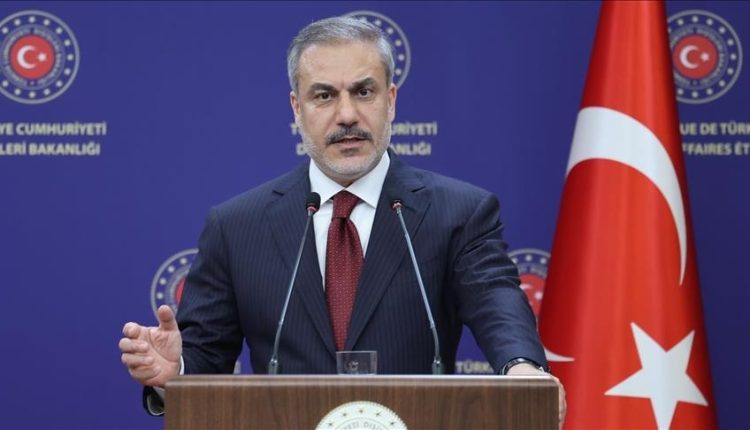Turkey Expects Syrian Administration to Address Kurdish Forces Issue
By Kardo Roj
DAMASCUS, Syria (North Press) – Turkish Foreign Minister Hakan Fidan stated on Tuesday that Turkey expects Syria’s new administration to address the issue of Kurdish forces in northeastern Syria, a long-standing concern for Ankara.
Fidan’s remarks, made during a press conference in Ankara, reflect Turkey’s enduring position on the presence of Kurdish-led forces, specifically the Syrian Democratic Forces (SDF), which control vast areas of northern and northeastern Syria. Turkey considers these forces an extension of the Kurdistan Workers’ Party (PKK).
In his statement, Fidan acknowledged that resolving the Kurdish forces issue “may take time” but emphasized the importance of the Syrian government’s cooperation in mitigating what Turkey perceives as a threat to its national security.
Escalating Tensions
Turkey has repeatedly threatened military action against the SDF and has conducted several cross-border operations since the onset of Syria’s civil war in 2011. Currently, Turkish-backed factions under the banner of the Syrian National Army (SNA) frequently launch attacks on areas under SDF control, including key cities such as Manbij and Kobani.
These skirmishes have contributed to instability in the region, with local populations bearing the brunt of the violence. The SDF, backed by the United States and the international coalition, has consistently defended its territory, emphasizing its role in combating ISIS and maintaining security in northeastern Syria.
The most recent surge in tensions follows comments made by Turkish President Recep Tayyip Erdoğan on Monday, reiterating Turkey’s readiness to conduct military operations in Syria. Erdoğan asserted that Ankara would act decisively against any perceived threats and rejected any plans to partition Syria post-Assad.
“We will not allow any divisions in Syria, and we will take all necessary measures to ensure our security,” Erdoğan said during a televised speech.
A History of Conflict
The SDF emerged as a prominent force during the Syrian civil war, gaining international recognition for its role in the fight against ISIS. However, its ties to the PKK have drawn Turkey’s ire, leading to heightened tensions along the Turkey-Syria border.
Turkey’s involvement in Syria has been multifaceted, ranging from direct military interventions to supporting proxy forces in the region. In 2019, Turkey launched Operation Peace Spring, targeting SDF-held areas and resulting in widespread displacement of civilians.
Despite international condemnation of its actions, Ankara maintains that its operations aim to establish a “safe zone” along the border, free from the presence of Kurdish forces. Critics argue that these actions exacerbate humanitarian crises and undermine the fight against ISIS.
Regional and International Implications
Turkey’s renewed pressure on Syria’s administration comes at a critical juncture, as Damascus seeks to regain control over fragmented territories following years of conflict. The Syrian government has not officially responded to Fidan’s statements, but analysts suggest that any cooperation with Ankara would require complex negotiations involving regional and international actors.
The United States, a key ally of the SDF, has consistently voiced opposition to Turkish military incursions in Syria. Washington’s support for the Kurdish-led forces remains a contentious issue in U.S.-Turkey relations.
Meanwhile, Russia, another influential player in Syria, has called for dialogue between Turkey and the Syrian government. Moscow’s involvement could be pivotal in shaping the future of Turkish-Syrian relations, particularly concerning the Kurdish issue.
As Turkey ramps up its rhetoric and signals potential military action, the situation in northeastern Syria remains precarious. The international community faces the challenge of balancing Ankara’s security concerns with the need to prevent further destabilization in the region.
With no immediate resolution in sight, the people of northeastern Syria continue to navigate an uncertain future, caught between the competing interests of regional and global powers.

